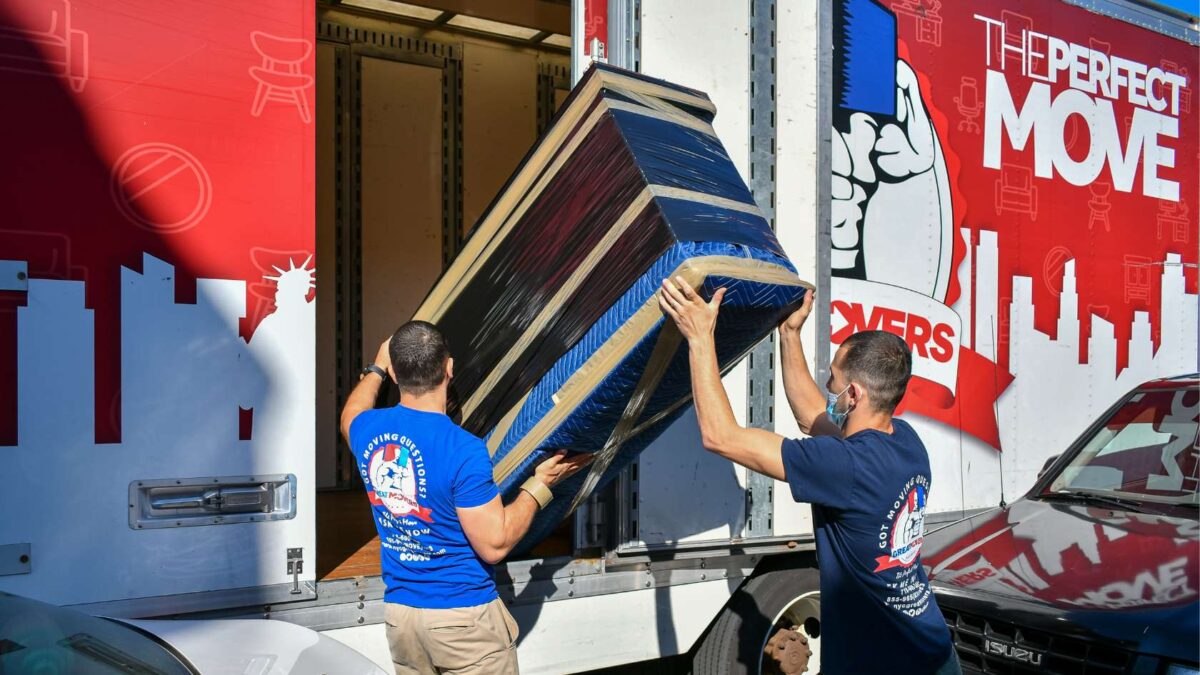One of the biggest concerns many people have when hiring NJ movers is managing all the costs involved. When budgeting for a move, it can easily be overwhelming as there are so many different costs associated with it from moving supplies to additional moving services. Plus, many NJ movers might not be upfront on additional fees you may need to pay when providing their quote. Even when working with reputable NJ moving companies, it can still be difficult to understand all the costs associated with a move. But it doesn’t have to be that way! Below are some tips and tricks on how to understand how much money to set aside for your NJ move.
Factors That Affect NJ Moving Cost
The cost of hiring NJ movers varies widely depending on what you need for your move. For example, a local move tends to be cheaper than a long distance move and they also tend to have different pricing structures. Most professional movers will charge you an hourly rate for local moves and a flat rate based on a few factors for your long distance move. In general, local moves range between $500 to $1,500 depending on the size of your move versus $2,000 to $5,000 and above for long distance.
So how do movers come up with these figures? It’s based on a few things including:
- Distance – the further away your new house is from your current home the more expensive it will be. Speaking of distance, the clock starts on the move when they leave their warehouse and stops when their truck is back at their HQ, not when they finished unloading their truck!
- Volume – The more you have, the larger the truck and the more time movers will need. This directly impacts cost especially for flat-rate moves as costs are calculated by combining distance and volume.
- Services – If you need anything else besides the basic loading and unloading, expect to pay more! Packing, unpacking, storage, etc. are all services moving companies provide at an additional cost.
- Time of year – while most companies won’t charge you more when moving during the summer or holiday season, you likely won’t be able to find as many discounts or negotiate a better deal as you might be able to during off peak season.
- Accessibility – Does your home have stairs? Will the movers need to park far away from your old or new home? All of these could incur an extra charge.
And don’t forget about other moving expenses like buying moving supplies, getting a hotel if your home is not move-in ready, renting a car, etc. All of these things add up!
Common Hidden Fees
Before you sign the contract for the movers, it’s important to understand any potential hidden or extra fees you can expect. Remember, the initial quote you get from the company is their best guess based on information you provide. If you realize you need extra services or forget to mention something like stairs, the final bill will likely be higher than the initial estimate. That’s why it is important to give as much information as possible for an accurate quote. A few things that can add on extra charges to your bill include:
- Stairs – many moving companies will charge extra money for each flight of stairs. So if you are moving out from a third floor walkup, expect to pay at least $30 more.
- Long carry – not all companies utilize this charge, but you should always ask if you don’t think the company will be able to park directly in front of your house or apartment. These fees are charged for carrying items a long distance from your home to the truck. The distance varies between companies and could be as short as 100 feet from doorstep to truck.
- Shuttle service – if you’re moving somewhere with narrow streets that can’t fit a full size moving truck, the company may charge you a shutter service fee that provides a smaller vehicle to move your belongings from the truck to your home.
- Packing materials – you’ll be charged extra for packing supplies like boxes, tape, bubble wrap, etc.
- COI – if you are moving into an apartment that requires a certificate of insurance, some moving companies might tack on a fee to produce the COI to building management.
- Travel time – in addition to the hourly rate for the move, many companies will also add a travel surcharge to your bill if your home is outside of a certain radius from their headquarters.
If you don’t see any of these fees listed out in the quote or contract, make sure to communicate potential issues clearly and ask questions about other additional charges.
Deposits and Cancellation/Rescheduling Fees
Once you have found the company for you, you will probably need to pay a deposit. This amount is usually $50-$100 depending on the cost of your move and will be credited against your final bill. However, since you will have to put this payment a month or more in advance, you’ll want to make sure you have it available. This deposit will also be held if you end up canceling or rescheduling outside of the contracted rescheduling time frame, usually up to 2 days before moving day. Some companies will even charge you the full amount of the move for these last minute changes, so make sure the moving date you provide works for you and if anything changes, contact the movers as soon as possible so you don’t get hit with these fees.
Tipping
The biggest fee many people forget is the tip! While it isn’t a required part of your move, it is still customary to provide a tip to your NJ moving crew if they ticked all the boxes. The standard tip is around $15-20 per hour per person. So for a 2 person crew that worked 4 hours, that would be $160 that you should set aside. Feel free to tip more if you felt the movers did an exceptional job and/or had to move a lot of bulky items. You can also provide the movers with some cold water during the summer or some hot coffee during the winter time. They’ll definitely appreciate it!
If the movers did not do a good job, don’t feel pressured to tip. Some red flags that warrant decreasing the tip amount include:
- Arriving late with no communication
- Poor attitude
- Making excessive noise or using profanity around children and neighbors
- Disregarding directions on your fragile, marked boxes
- Damaging belongings
- Demanding cash for each mover
- Slow, lazy service
If the movers try to threaten or pressure you, call the office and let them know what happened. You do NOT need to provide a tip if the crew does not do a good job with your move or, at any point, make you feel unsafe.
Reducing Your Moving Costs
While some costs are fixed, there are ways you can save money on your move. The first thing you should do is declutter as much as possible. The less stuff you have, the less you need to move, which means fewer boxes and less time movers need to take loading and unloading your belongings. You can even make some money on the items you decluttered by hosting a garage or yard sale. While you’ll never recoup the original amount you paid for the items, you could earn back a couple hundred dollars depending on what you’re selling, which can give you some extra wiggle room in your moving budget.
Another great way to save money is to shop around. Don’t hire the first movers that show in your search. Take note of a few and call them up to compare services and quotes. If one company offers the services you need but are a little more expensive than a comparable company, try and negotiate the rates down. You can also ask if they have any deals or discounts available.
Finally, pack as much as you can yourself. It’s tedious, but it will save you money in the long run. If you still need some help, see if the moving company provides partial packing service. That way you can have them focus on packing a certain room or area while you pack the rest. For the best value, have the movers pack your fragile items. While the movers do cover your belongings with the released valuation for free, it will usually only cover items the movers packed themselves. If you packed the items and they get damaged, it won’t be covered in released or full valuation unless it can be proved that the damage happened due to negligence by the movers and not poor packing on your part.
Ready to Make a NJ Move In Your Budget
At NJ Movers, we provide excellent service at affordable prices. Our company has become the movers NJ residents trust. So if you’re looking to make your NJ move, reach out to us and we’ll help create a customized moving plan that matches your needs and budget.

